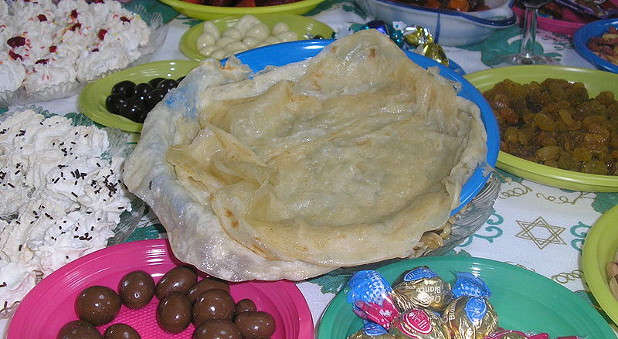Jews Embrace Mimouna Following Passover
Immediately after the close of the seventh day of Passover is the Moroccan-Jewish festival called Mimouna.
There has been a Jewish presence in Morocco since 70 A.D. Since then, the Moroccan Jews have migrated to other countries, including Israel, France and Turkey, taking the Jewish version of the celebration of the Mimouna festival with them.
One of the historical correlations prior to Islam in Morocco celebrates the physical freedom the Hebrews experienced after being saved from the pursuing Egyptian army at the Sea of Reeds on the seventh day after fleeing Egypt.
Much of the Jewish population left Morocco at the time of the creation of Israel. Muslims celebrated a pagan version of this festival, which Moroccan Jews changed.
Jews did not eat outside of their homes during Passover, which caused them to fall under the suspicion of Islamic rulers, so Moroccan Jews, immediately after Passover, opened their doors to their neighbors for anyone to come and dine with them with blessing so as to keep the peace.
In Israel, over 1 million people are of Moroccan Jewish ancestry. North African Jewish immigrants celebrated the Mimouna with their families after settling in Israel. It was introduced as a national holiday in 1966.
During this festival, people go from house to house, visiting friends and family while wearing traditional North African clothing, and eating sweet foods. The following day is devoted to family celebrations, visiting and hosting, and many public areas host hundreds of people for barbecues in the parks.
For this interfaith holiday, Moroccan Jews would give all of their flour, yeast and grain that remained before Passover to their Muslim neighbors. In return, their Muslim neighbors were often the first to visit the Jews after Passover and would bring them sweets and other food items that were now permissible for Jews to eat.
Mimouna foods symbolize the Sea of Reeds, where the miracle that God performed for the Hebrews took place on the seventh day after the Hebrews fled Egypt. It represents the miracle of the “splitting” of the Sea of Reeds by God through Moses’ strike of his staff on the waters that allowed the Hebrews to escape the pursuing Egyptian army.
Mimouna foods include a live fish swimming in a bowl of water or fish placed on a plate with a bed of vegetables and lettuce; Moroccan sweet foods; mint tea; and coins that symbolize the coins that were washed up on the shoreline after the Egyptian army drowned in the Sea of Reeds.
Mimouna is called the holiday that makes the happiness of the Pesach exodus complete, with personal redemption.
For the original article, visit messianictimes.com.














































